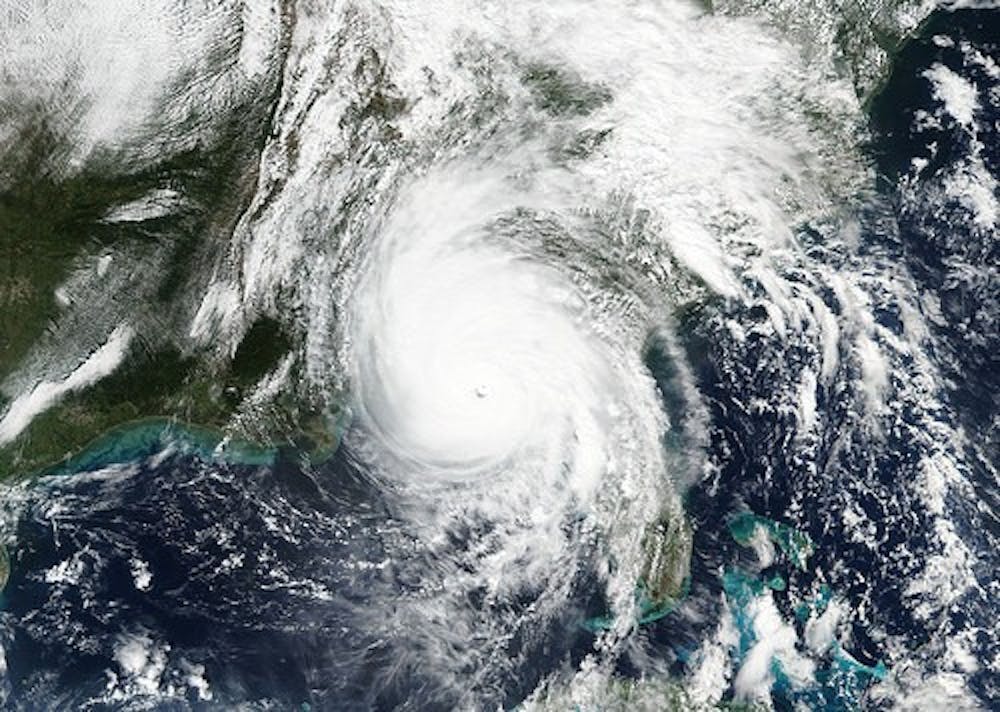Growing up in Florida, hurricanes were just a part of life. There were usually one or two hurricanes or tropical storms a year, and some years saw even greater numbers. In 2004, there were four hurricanes: Charley, Frances, Ivan, and Jeanne. Though each of these hurricanes caused significant damage, my memories are rosy: having hurricane days off from school, spending the day building forts with flashlights, and even a trip to the beach in Tampa when we had to evacuate from hurricane-stricken Orlando.
When I heard of Hurricane Michael, my first thought was that Florida has had enough experience with hurricanes and that surely there wouldn’t be much damage or inconvenience. Reports from the Panhandle, however, have made me realize that growing up in a place of privilege deeply affected my perception of the consequences. Although my family might never have needed aid or experienced significant damage, there are thousands of people who have not been so lucky. Their experiences highlight the need for better disaster relief services, especially for those most affected by hurricanes.
Hurricane Michael was one of the worst hurricanes in American history, with winds up to 155 miles per hour and heavy rainfall. The most significant damage has occurred in the Florida Panhandle, which is home to some of the state’s most rural and poorest neighborhoods, such as Panama City Beach and Mexico Beach. Most of these neighborhoods were not built with the same durability as more affluent districts and have not been renovated with new technology. In the storm’s aftermath, 3,000 people are living in shelters, and space is continuing to run out. Many of these neighborhoods have been without running water and electricity for days, leaving residents to scramble to find resources.
Anticipating these issues, the state government advised Panhandle residents to evacuate, but they did not provide instructions for residents who lacked the economic means to do so. The government assumed all residents possessed the privilege to evacuate, even though many stayed in high-risk areas because they had no other options. Those residents had to consider the cost of the damage to their homes caused by the hurricane, as well as the cost of basic necessities such as food and water. After those expenses, many were left with few resources for the transportation and housing required during an evacuation. The federal government often advises those in poverty to turn to their neighbors for help with transportation and housing, but such recommendations hardly constitute a comprehensive plan for disaster relief.
Given this reality, it is clear that the state and national government need to provide disaster relief for people of all socioeconomic classes. Aid workers for the Red Cross stockpiled millions of pounds of supplies before the hurricane made landfall, but they now lack vehicles robust enough to make it through the debris and flooding, which limits their ability to deliver supplies. The National Guard has these vehicles, and thus, should be fully dedicating its efforts to relief in the Florida Panhandle. The National Guard is already working in the Panhandle, but with only a subset of their available members and resources; this subset is not enough to fully handle the devastation facing many residents. Given the current conditions, relief efforts in the Panhandle should take precedence.
Currently, state officials are focused on search-and-rescue efforts rather than bringing supplies into the area. Both areas of work are crucial, so a choice between one or the other should not be made. Rather, amassing supplies and distributing them throughout the state should be done before the threat of a hurricane, so that it does not take so much time and effort when one does make landfall.
Similarly, during periods when a disaster is not imminent, the government should focus on providing subsidization for renovating houses most at risk for demolition. Though some might argue that private housing conditions are not the government’s responsibility, few would extend this point to disaster relief efforts after a hurricane. If these neighborhoods are better prepared for the hurricanes that hit Florida every single year, then the disaster relief efforts will not be so all-encompassing after the storms make landfall.
I might have enjoyed hurricane parties and days off from school, but I was lucky not to deal with challenges of infrastructure and accessibility, which many Panhandle residents are currently facing, in suburban Jacksonville. It is incumbent upon the government to provide the preparation and disaster-relief efforts to lessen these challenges for Florida’s most vulnerable residents.
Morgan Lucey is a senior studying neuroscience from Scottsdale, Ariz. She can be reached at mslucey@princeton.edu.









